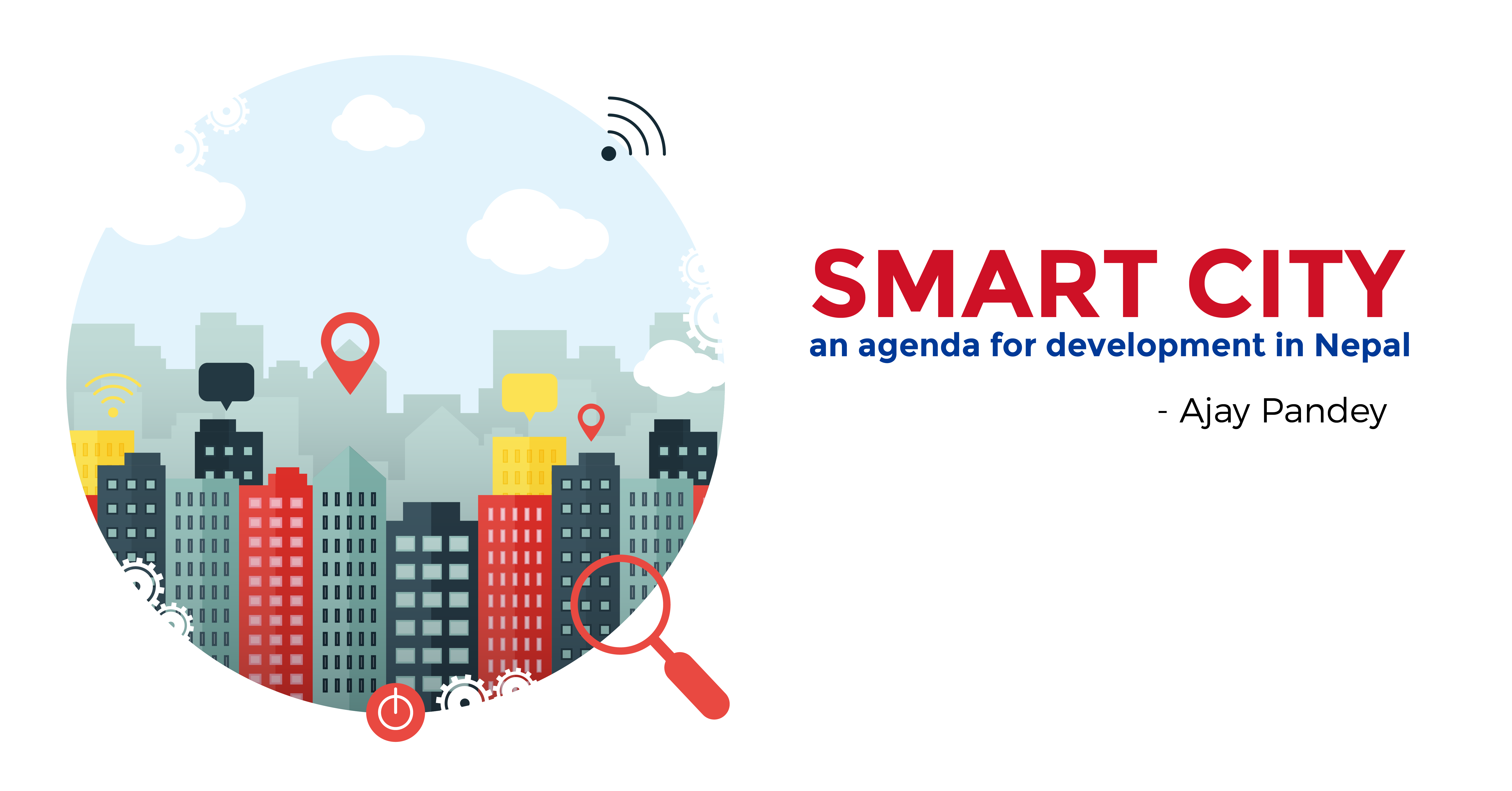As the technology gets better than ever, the whole world is into the race of establishing the smart cities. Seoul and Tokyo of Asia have already tagged themselves as of smart city. It has been the major agendas for many developing countries too. Meanwhile in Nepal, the idea of smart cities has started to become the hot topic in the political manifesto to attract the voters. So the question arises, what is a smart city what makes your city smart?
There is no universal definition of a smart city, hence varies from people to people and place to place. Basically, a smart city has a highly advanced overall infrastructure and uses information and communicational technologies to increase operational efficiency and make the facilities accessible to everyone.
It involves many technological platforms, high-end sensors and well-equipped data centers. Information sharing can become most effective. Imagine the street lights are off automatically when the path is empty and turns on instantly when someone approaches. Parking your vehicle would no more be a problem as you can just tap your smartphone to book a space. Book your appointment with the doctor, notify the police about the casualties on the road or even get waste collector in your door when your dustbin gets full; everything is just a click away from you.
Smart infrastructure
Smart Infrastructure includes technology like Intelligent Transport Systems (ITS) which provides smart parking system, enhanced road safety, intelligent traffic management and much more. Apart from it, Efficient Building Management is next feature of smart cities. On System called prosumers allows the building to use the same amount of energy that they produce. Data like temperature, air quality, water quality can be recorded. Vienna, the capital city of Austria is using Aspern Smart City Research for measuring urban energy efficiency and the concept of smart data.
Smart Environment
A smart environment is all about nurturing the nature with the use of technology. For smart environment, a smart city should have the intelligent buildings with smart electric grid system helping to reduce energy consumption. The cities should have smart waste management system along with enhanced pollution management systems by using remote sensors. The people of the city should have provision to interact with the government regarding environmental issues. Paper use can be reduced as the use of technology can change the trend. Similarly, environment data system allows government and the agencies to prepare the plans and policies as per the prevailing situation.
Smart Governance
The major feature of smart governance is to build a channel between government bodies and citizens with the use of technology and make the effective participation of people.The opinion, suggestions, and ideas reach easily to top leaders of the country.
Open data and open license system which makes thing easy, effective and impactful. Open data will not only help to anticipate social status but also it will encourage citizen for contribution in solving social problems. Few categories of data will be excluded from safety and security of citizen and government.
Smart governance is all about providing smarter economy for entrepreneurs and business people and promoting quality life for other residents with easy access to customized services. The technology powered governance system will end the days where people will have to spend hours in a queue to get their electricity and water bills paid.
Challenges for countries like Nepal
Presently, Nepal lags behind in the development of vital infrastructural setup and the pace of development is very slow. While we discuss ideas to label our cities ‘smart’ we shouldn’t neglect the challenges that lie ahead.
Finance
Billions of investments are required to turn our dream into reality. Nepal is struggling in the web of trade deficit, heavy international loans, low tax collection, and other social problem which adds difficulty to plot technological enhancement.
Co-ordination
Shifting into e-governance with the guarantee of accountability and transparency can be challenging. It requires proper co-ordination between local government, private sector, and central government. Additionally, the working mechanism of ours since the ages can be a hurdle if not revised.
Illiteracy
Illiteracy is still a major issue of the country. Computer and internet seem a challenge for the large proportion of the people. Hence, e-literacy can become a barrier for the effective administration of techno-friendly policy.
Solutions
Although getting investment and mobilizing is a huge problem, public-private partnership can come handy. The government should initiate training and development programs to teach the public about e-learning and e-commerce. Every stakeholder should be aware and responsible for their works. Producing the skilled manpower should be the prime focus as they are vital to ensure the success of the system. People becoming aware of their duties to maintain their environment, locality and ensuring their participation is equally important. It is not a single effort but the vision and aspiration of all the people.
By: Ajay Pandey







